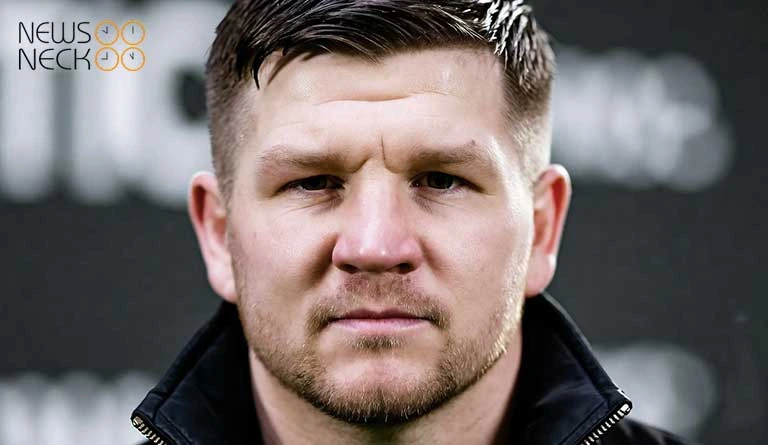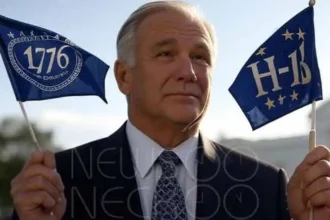The Final Bell: What a Boxer’s Death Reveals About the Fight Outside the Ring
There is a particular kind of silence that follows a sudden death. It is a silence filled not with absence, but with unanswerable questions. For weeks, the death of Ricky Hatton, the former boxing world champion beloved across Britain, existed in that kind of quiet. He was a man known for his roaring crowds and his all-action style in the ring, a figure of immense public affection. Then, on Thursday, a short, formal hearing in a coroner’s court in Stockport broke that silence with a stark, clinical fact: the provisional cause of death was hanging.
This was not the final word the inquest was adjourned until March 20, 2026 but it was the first official word. The news confirmed what many had suspected but hoped wasn’t true: that “The Hitman,” at 46, had taken his own life .
The details that emerged painted a picture that was both ordinary and tragic. Hatton was last seen by his family on September 12. To them, he appeared “well”. The following day, he unexpectedly missed a scheduled event. The tragedy fully unfolded on the morning of September 14, when his manager and long-time friend, Paul Speak, arrived at Hatton’s home in Hyde, Greater Manchester. He was there to take the boxer to Manchester Airport for a flight to Dubai, where Hatton was to hold a press conference for a planned comeback fight in December. Instead, he found Hatton unresponsive.
You Might Like it: How the Las Vegas Aces Forged a Modern WNBA Dynasty
The Man Behind the Champion
To understand the weight of this loss, one must understand who Ricky Hatton was. He was not just a champion; he was a “People’s Champion”. His down-to-earth demeanor, his everyman personality, and his thrilling fighting style made him a rare figure who was both a top-tier athlete and a man who seemed like he could be your friend . He was a proud Mancunian, an avid Manchester City fan, and his ring-walk song, “Blue Moon,” became an anthem for the tens of thousands of fans who followed him to Las Vegas for his biggest fights.
His career was the stuff of legend. He held world titles in both light-welterweight and welterweight classes . His stunning victory over the favored Kostya Tszyu in 2005 is one of the great nights in British boxing history. He fought the best of his era, from Floyd Mayweather Jr. to Manny Pacquiao, retiring in 2012 with a record of 45 wins and only 3 losses.
Yet, the same man who seemed invincible to his fans was openly vulnerable about his struggles. In the years after retirement, Hatton spoke candidly about his battles with depression, alcohol, and drugs. He had discussed past suicide attempts, making his final struggle part of a longer, more painful fight that happened far from the bright lights of the ring.
A Family’s Heartbreak and a Broader Question
The contrast between the man described in the coroner’s court and the man described by his family is the central tragedy. His family had insisted he was “in a good place,” a doting father and grandfather who was excited for his future comeback. He had even packed his bags for the trip to Dubai. This gap between outward appearance and inner turmoil is a painful reminder of the hidden nature of mental health crises.
His death has done more than break the hearts of his family and his legion of fans; it has sparked a necessary conversation. Tributes poured in from across the sports world, but so did difficult questions. Sports promoter Barry Hearn stated that his death should prompt sports bodies and the government to look at the issue of supporting athletes after they retire and no longer live under the spotlight.
The celebration of his life last week showed the scale of his impact. Thousands of mourners lined the streets of Manchester. Celebrities like Liam Gallagher, Wayne Rooney, and Tyson Fury attended his memorial service at Manchester Cathedral. His son, Campbell, himself a boxer, gave an emotional tribute, saying, “I can’t explain how much I’m going to miss you dad, and that we won’t be making any new memories but the ones we did I will cherish forever”.
The inquest has provided a painful answer, but it has also opened up a larger story. It is a story about the price of glory, the difficulty of life after fame, and the silent battles that continue long after the final bell has rung. The court will meet again in March, but for Ricky Hatton, a champion loved by millions, the fight is over.
Author: Yasir Khan
Date: 16 Oct, 2025
For More Updates, visit Newsneck













